Related Research Articles

Joseph Alois Schumpeter was an Austrian political economist. He was born in Moravia, and briefly served as Finance Minister of German-Austria in 1919. In 1932, he emigrated to the United States to become a professor at Harvard University, where he remained until the end of his career, and in 1939 obtained American citizenship.

Creative destruction, sometimes known as Schumpeter's gale, is a concept in economics which since the 1950s is the most readily identified with the Austrian-born economist Joseph Schumpeter who derived it from the work of Karl Marx and popularized it as a theory of economic innovation and the business cycle.
The historical school of economics was an approach to academic economics and to public administration that emerged in the 19th century in Germany, and held sway there until well into the 20th century. The professors involved compiled massive economic histories of Germany and Europe. Numerous Americans were their students. The school was opposed by theoretical economists. Prominent leaders included Gustav von Schmoller (1838–1917), and Max Weber (1864–1920) in Germany, and Joseph Schumpeter (1883–1950) in Austria and the United States.
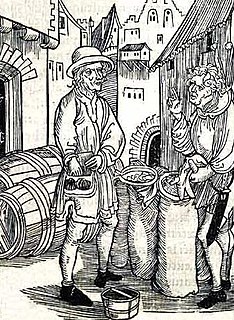
Usury is the practice of making unethical or immoral monetary loans that unfairly enrich the lender. The term may be used in a moral sense—condemning, taking advantage of others' misfortunes—or in a legal sense, where an interest rate is charged in excess of the maximum rate that is allowed by law. A loan may be considered usurious because of excessive or abusive interest rates or other factors defined by the laws of a state. Someone who practices usury can be called an usurer, but in modern colloquial English may be called a loan shark.

An academic discipline or field of study is a branch of knowledge, taught and researched as part of higher education. A scholar's discipline is commonly defined by the university faculties and learned societies to which they belong and the academic journals in which they publish research.
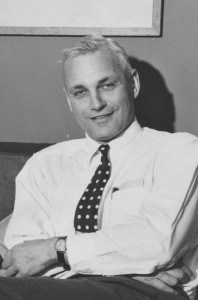
Paul Marlor Sweezy was a Marxist economist, political activist, publisher, and founding editor of the long-running magazine Monthly Review. He is best remembered for his contributions to economic theory as one of the leading Marxian economists of the second half of the 20th century.

The Protestant work ethic, also known as the Calvinist work ethic or the Puritan work ethic, is a work ethic concept in theology, sociology, economics and history which emphasizes that diligence, discipline, and frugality are a result of a person's subscription to the values espoused by the Protestant faith, particularly Calvinism.

The School of Salamanca is the Renaissance of thought in diverse intellectual areas by Spanish theologians, rooted in the intellectual and pedagogical work of Francisco de Vitoria. From the beginning of the 16th century the traditional Catholic conception of man and of his relation to God and to the world had been assaulted by the rise of humanism, by the Protestant Reformation and by the new geographical discoveries and their consequences. These new problems were addressed by the School of Salamanca. The name refers to the University of Salamanca, where de Vitoria and other members of the school were based.

Fritz Machlup was an Austrian-American economist who was president of the International Economic Association from 1971–1974. He was one of the first economists to examine knowledge as an economic resource, and is credited with popularizing the concept of the information society.
Philosophy and economics, also philosophy of economics, studies topics such as rational choice, the appraisal of economic outcomes, institutions and processes, the status of highly idealized economic models, the ontology of economic phenomena and the possibilities of acquiring knowledge of them.
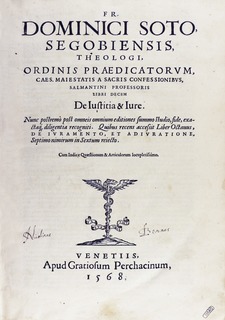
Domingo de Soto was a Spanish Dominican priest and Scholastic theologian born in Segovia (Spain), and died in Salamanca (Spain), at the age of 66. He is best known as one of the founders of international law and of the Spanish Thomistic philosophical and theological movement known as the School of Salamanca. He is also known for his contributions to Mechanical Physics.
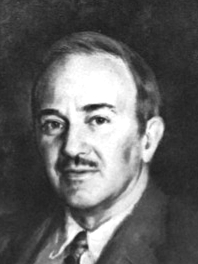
Edward Hastings Chamberlin was an American economist. He was born in La Conner, Washington, and died in Cambridge, Massachusetts.
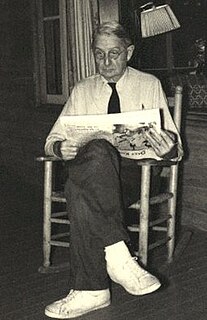
John Maurice Clark (1884–1963) was an American economist whose work combined the rigor of traditional economic analysis with an "institutionalist" attitude. Clark was a pioneer in developing the notion of workable competition and the theoretical basis of modern Keynesian economics, including the concept of the economic multiplier.
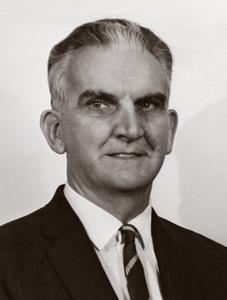
Kenneth Ewart Boulding was an English-born American economist, educator, peace activist, and interdisciplinary philosopher. He published over 36 books and over 112 articles. Boulding was the author of two citation classics: The Image: Knowledge in Life and Society (1956) and Conflict and Defense: A General Theory (1962). He was co-founder of general systems theory and founder of numerous ongoing intellectual projects in economics and social science. He was married to sociologist Elise M. Boulding.
In the history of economic thought, ancient economic thought refers to the ideas from people before the Middle Ages.
Frederic Michael Scherer is an American economist and expert on industrial organization. Since 2006, he continues as a professor of economics at the JFK School of Government at Harvard University.
Wolfgang Friedrich Stolper was an American economist.
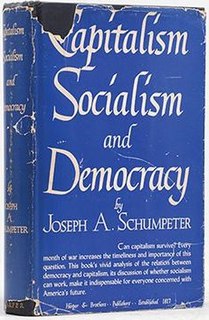
Capitalism, Socialism, and Democracy is a book on economics, sociology, and history by Joseph Schumpeter, arguably one of—if not his most—famous, controversial, and important works. It's also one of the most famous, controversial, and important books on social theory, social sciences, and economics—in which Schumpeter deals with capitalism, socialism, and creative destruction.
Duncan K. Foley is an American economist. He is the Leo Model Professor of Economics at the New School for Social Research and an External Professor at the Santa Fe Institute. Previously, he was Associate Professor of Economics at MIT and Stanford, and Professor of Economics at Columbia University. He has held visiting professorships at Woodrow Wilson School at Princeton University, UC Berkeley, and Dartmouth College, as well as the New School for Social Research.
Joe Staten Bain was an American economist associated with the University of California, Berkeley. Bain was designated a Distinguished Fellow by the American Economic Association in 1982. An accompanying statement referred to him as "the undisputed father of modern Industrial Organization Economics."